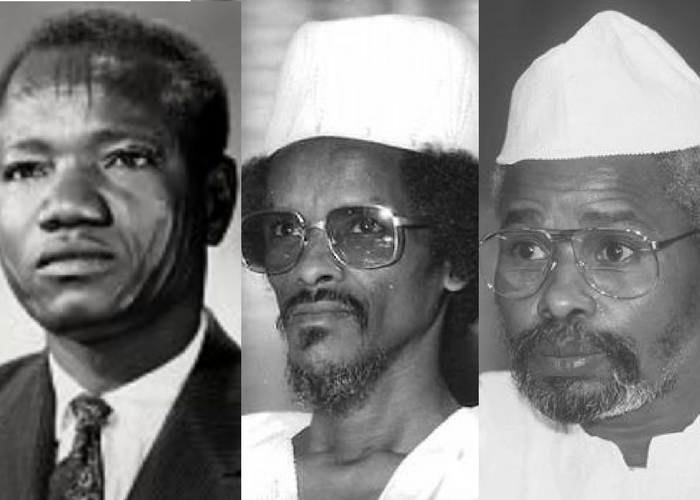In 1947, Gabriel Lisette formed the Chadian Progressive Party (PPT) but he was replaced by Francois Tombalbaye as the leader of the party in 1959. Francois Tombalbaye later became the first President of Chad. Tombalbaye was born on June 15, 1918 in the village of Bessada, Moyen-Chari Prefecture in the southern region of the French colony of Chad, close to the city of Koumara. He studied to become a teacher in the Republic of Congo’s capital of Brazzaville because they were no schools he could access in his own country.
After independence he eliminated opposition in his party and outside his party and banned all other political parties. In 1963, Tombalbaye dissolved the National Assembly. However, he began a nationalization/ Africanization program designed to empower the Africans and to move away from dependence on France. Tombalbaye’s Africanization program failed to account for the large population in the north and center of the country, who were Muslim and viewed his leadership with suspicion and merely as a shift of control from French colonials to the south. On November 1, 1965, riots in Guéra Prefecture led to 500 deaths.

A new movement led to the formation of new groups such as the FROLINAT, or ‘Chad National Liberation Front’, based in Sudan. In order to resist the FROLINAT, Tombalbaye sought help from the French in 1968 and 1969. He was also able to resist an attack by the FROLINAT in 1972. In elections in 1969, several hundred political prisoners were released from prison, and in 1971, Tombalbaye admitted to the Congress of the PPT that he had made mistakes and was willing to reform.
He continued with his quest for Africanization, and Tombalbaye disbanded the PPT, replacing it with the National Movement for the Cultural and Social Revolution (MNRCS). He renamed towns and banned Christian names, and expelled missionaries. The capital of Fort-Lamy was renamed N’Djamena and Tombalbaye changed his name from François to Ngarta.
On April 13, 1975, a group of soldiers killed Tombalbaye and buried his body in Faya. The military installed Félix Malloum, by then a General, as the new head of state.
Malloum’s leadership was immediately besieged by problems because he guaranteed foreign investments and prohibited political activity. During his tenure, Libya continued to back FROLINAT which attempted to assassinate Malloum several times. France meddled again by arranging a coalition government in which Malloum would be head of state and Hissene Habre would be Prime Minister. But the union was short-lived and fighting broke out between the two factions because Malloum was seen as representing the Christian south and Habre as representing the Muslim north. Malloum resigned from the presidency on March 23, 1979 after signing the Kano Peace Agreement which allowed the rebels to form a provisional government.

As soon as Goukouni Oueddi became, he began fighting Habre. The rivalry between Goukouni and Habré limited the government’s effectiveness and contributed to the perception of Goukouni as an indecisive puppet of Libyan leader Muammar Gaddafi. In a last-ditch attempt to salvage his struggling government, Goukouni appointed Djidingar Dono Ngardoum as prime minister on 19 May 1982. The GUNT (Government of National Unity) was, however, overthrown by Habré loyalists on 7 June 1982. Goukouni fled from N’Djamena across the Chari River into Cameroon; he subsequently went into exile in Tripoli, Libya.
In 1982, Habre declared himself head of state after taking over the capital, N’Djamena.





7 responses to “A Brief History of Chad: Tombalbaye, Habre & Goukouni”
Macron is a barbarian. He must shut up stop meddling in Africa.
This history lesson is indicative of the major problem across Africa. Leaders competing amongst themselves not realizing they are being used by French & Arabs for their own means but never for the benefit of Africans. What is the point of getting independence only to guarantee your oppressors access to your resources?
Malloum & Gouchouni & Tomboulbaye were such a coons. History does not show them in a good light because their actions were coonish. Seeking help from French was weak & pathetic. Being indecisive is the mark of weakness. Terrible examples of black male leadership.
We can have a show called sex and the city dealing with the same subjects matter and it is praised a great series. Give me a break and this is coming from a black man. Support our sisters.
The goal should be advancement regardless who is leader. Here were 3 individuals with 3 different agendas , tge result was chaos, society disintegration, foreign & invasion. Chad was biggest loser
This shows lack of code of conduct from ruler class.
He fought fir his people & preserved his country. The Tswana are happy today, he did the best he could with the hand he was dealt.